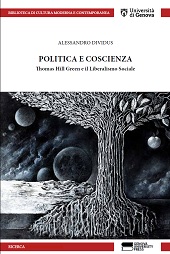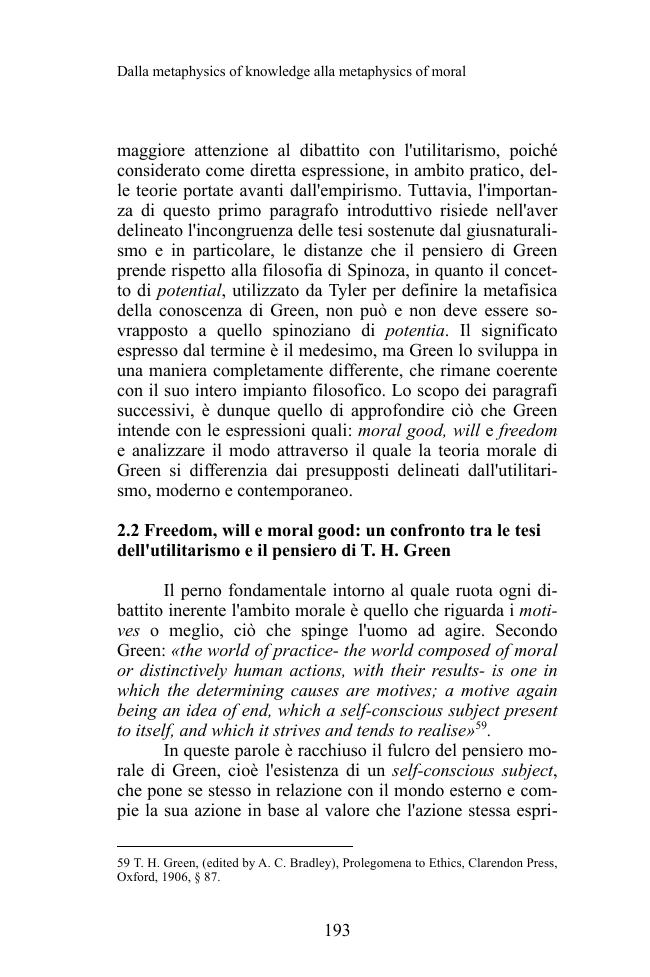Politica e coscienza : Thomas Hill Green e il liberalismo sociale
381 p.
Includes bibliographical references (p. 357-381).
Il primo capitolo di questo lavoro è incentrato sull'analisi della critica rivolta da Green nei confronti dell'empirismo anglosassone. In particolar modo, vengono analizzate le asimmetrie teoriche dell'epistemologia empiristica di Locke e Hume, e messa in evidenza la radice kantiana della teoria di Green. Nel secondo capitolo, l'attenzione si sposta dalla metafisica della conoscenza a quella dell'etica, mettendo in luce le problematicità dell'etica utilitaristica. Il terzo capitolo, invece, è incentrato sull'aspetto politico della filosofia di Green, dal suo impegno diretto ai problemi riguardanti il valore della proprietà privata o dell'educazione, a quelli che concernono la forma dello Stato e il valore dell'auto-realizzazione individuale. [Testo dell'editore]
Starting from Green's critics against the empiristical epistemology of Locke and Hume, I moved to analyse the main features of Green's theory of knowledge, reconstructing his intellectual background rooted to the Kantian critical rationalism and the following german idealism. After having analysed Green's metaphysics of knowledge, the research moved, in the second chapter, to further its implication in his metaphysics of ethics, facing the theory of ethics developed by the utilitarians. The third chapter develops the last aspect of Green's philosophy, i. e. politics and social liberalism. I started analysing his political engagement. After having reconstructed some of his life-historical features, I moved to study his political-philosophical backgrounds, such as the value he gave to the meaning of the private property or the role of the State and its relationship with the individual self-realisation. [Publisher's text]
T. H. Green (1836-1882)
Online only available
-
Informations
ISBN: 9788836180363



